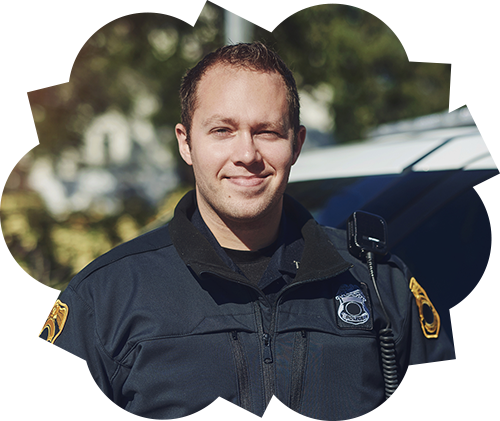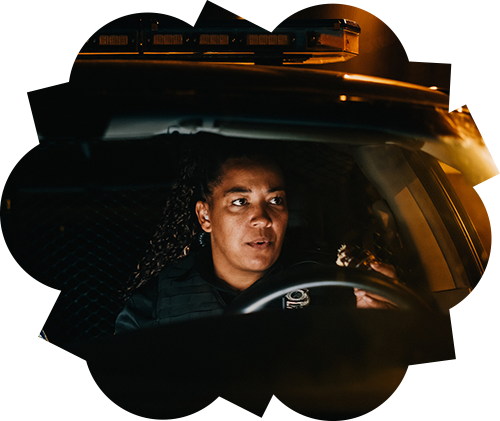What is CT LAP and
how does it work?
CT LAP is a three-pronged intervention process. Police will…
1. Screen a survivor at the scene of an intimate partner violence incident during the 911 call follow-up.
2. Connect survivors who are deemed to be “high danger” directly to local domestic violence advocates.
3. Talk to the survivor about all potential charges based on criminal acts indicated on the LAP screen.
How does CT LAP help our community?
Survivor
Safety
During an officer’s response to a 911 call, they will use CT LAP to assess for escalating violence that could turn fatal.
Connect Survivors to Services
CT LAP connects survivors with local domestic violence advocates who provide safety planning and support after the incident.
Offender
Accountability
CT LAP helps police better understand the survivor's situation to discuss the possibility of pursuing additional charges.
Understanding the assessment
and why it’s so important.
The Connecticut Lethality Assessment Program (CT LAP) is a specialized risk assessment tool utilized by police during incidents of intimate partner violence to determine the survivor’s risk of escalation to serious injury or fatal violence.
It helps survivors give law enforcement an understanding of their partner’s abusive behavior so that law enforcement may gauge the survivor’s level of safety and connect them with local domestic violence services from CCADV’s 18 member organizations.

View Common Scenarios
Let’s go through common FAQ's survivors may have about LAP and police intervention. To better understand everyone’s role and experience during a domestic violence call, view scenarios from the perspective of the survivor, law enforcement, and a domestic violence advocate.
POLICE Perspective

“Be prepared for anything. I can't gauge the level of danger until I arrive.”


